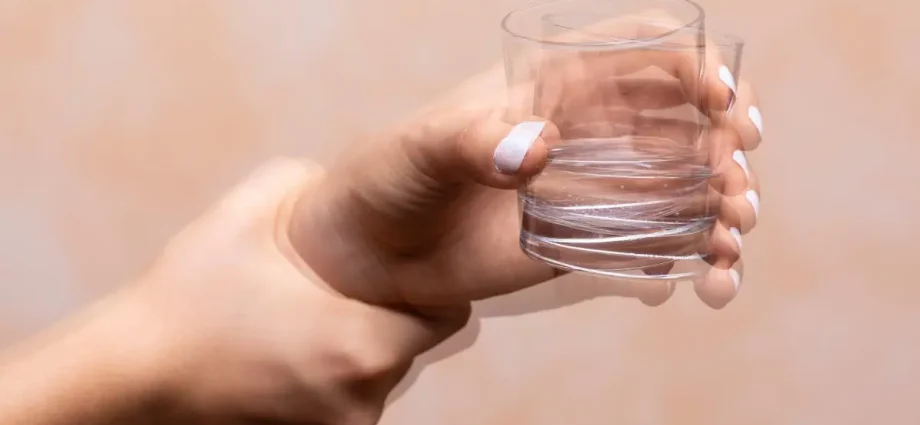Contents
Hangovers are a natural consequence of excessive drinking. In mild cases, the result of alcohol poisoning is headache, nausea and discomfort, which disappear within a day. Severe intoxication often causes such unpleasant phenomena as chills, cold sweats and tremors of the limbs. Next, we will figure out why hands are shaking after alcohol and how to quickly get rid of this condition.
What is a tremor
Tremor is called involuntary oscillatory movements of the muscles of one or more parts of the body. Trembling is a normal reaction of the body to emotional stress, overwork or severe hunger. This condition often becomes a side effect of taking drugs: caffeine, corticosteroids and amphetamines, as well as a consequence of diseases of the endocrine system. Physiological tremor is not considered a pathology, as it is associated with a specific cause and quickly disappears when the body returns to normal.
Hangover tremor is a side effect of withdrawal symptoms associated with alcohol withdrawal. As a rule, the hands begin to tremble 5-6 hours after the last dose and in severe cases can last up to several days. Often, movement disorders are observed after prolonged binges, and in chronic alcoholics, tremor can become chronic.
Causes of alcohol tremor
Pathology occurs due to the inhibitory effect of alcohol on the nervous system. First of all, ethanol affects the work of dopamine receptors, contributing to the production of the “hormone of happiness” dopamine. At the initial stage of intoxication, a person feels a surge of energy, cheerfulness and positive emotions. A similar state occurs after a couple of glasses of wine, a glass of strong liquor, a bottle of beer, but the desire to prolong the pleasant sensations encourages you to increase the dose of alcohol.
A higher concentration of alcohol in the blood leads to the fact that ethanol begins to suppress the central nervous system through the neurotransmitter gamma-aminobutyric acid (GABA), which is responsible for the inhibition process. The result is a decrease in the excitability of the brain and spinal cord, which manifests itself in a pleasant feeling of relaxation and calmness. At this stage, alcohol acts as a depressant – reduces the feeling of fear and anxiety, causes drowsiness.
Long-term alcohol intake triggers self-regulation processes in the body. The brain tends to compensate for the sedative effects of alcohol and produces more excitatory neurotransmitters. After the abrupt withdrawal of alcohol, the braking system does not return to normal immediately. The consequence of excessive activity of the central nervous system is tachycardia, tremor and even convulsions.
Consequences of long-term alcohol dependence
Long-term alcohol abuse can damage the cerebellum, the area of the brain responsible for coordination, balance, and fine motor skills. Pathology occurs in alcoholics with an experience of more than 10 years. In addition to unsteady gait, poor balance and clumsiness, addicted people experience intentional tremor, which becomes noticeable at the final stage of the action – the closer the target, the more the hands tremble.
Tremor is characteristic in the later stages of alcoholic liver damage. In this case, the pathology manifests itself in the form of fast and irregular movements, reminiscent of the movement of wings. The symptom indicates the development of hepatic encephalopathy, causing brain dysfunction. In the advanced stage, the disease is difficult to treat, and in severe cases, only liver transplantation can help.

How to get rid of a hangover
Hand tremor after alcohol is a reason to think about how often you drink alcohol. The state of discomfort indicates the appearance of physical dependence on alcohol, which sooner or later will lead to serious consequences. In this state, you can not succumb to temptation and get drunk. A portion of alcohol will relieve trembling for several hours, but then the tremor will return with renewed vigor.
If hands are shaking after alcohol, then the most effective ways to get rid of this phenomenon:
- take a warm shower;
- drink activated charcoal or sorbents (enterosgel, smecta);
- restore water balance;
- provide access to fresh air.
Infusions of medicinal herbs, herbal preparations to improve sleep will help calm the nervous system. Serious disorders after prolonged binges require professional medical attention. In these cases, narcologists carry out detoxification measures, prescribe tranquilizers and antipsychotics.
The action of alcohol exacerbates malnutrition and vitamin deficiency. The intake of vitamin and mineral complexes in combination with a diet rich in lean protein and complex carbohydrates will help strengthen the body. Insomnia contributes to the appearance of tremors, so it is important to get at least eight hours of sleep a night and make time for sports and outdoor walks.
Attention! Self-medication can be dangerous, consult your doctor.










